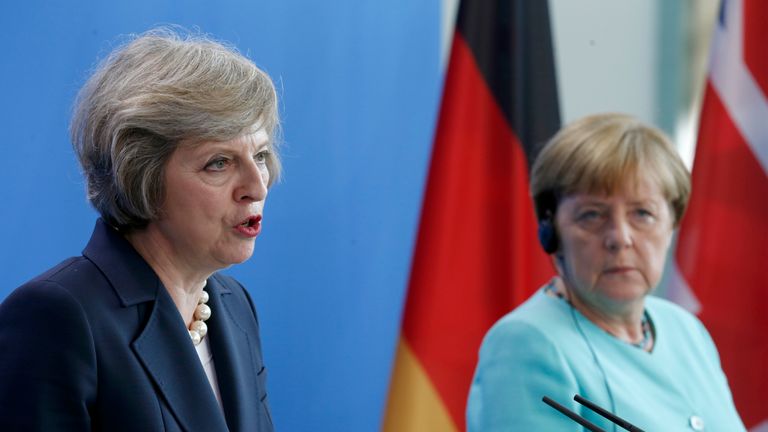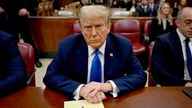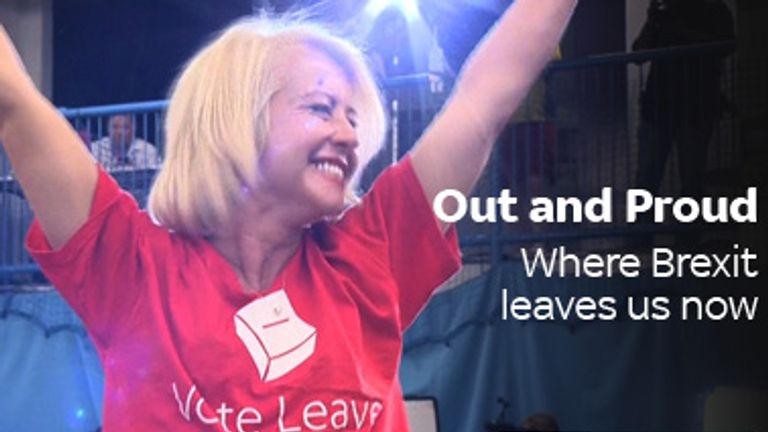European Leaders Outline Vision For Post-Brexit EU
Common defence, intelligence sharing and reducing youth unemployment will be the priorities once the UK leaves the bloc.
Wednesday 24 August 2016 01:12, UK
Europe's most powerful leaders have outlined their vision of the EU without the UK.
Italian Prime Minister Matteo Renzi welcomed German Chancellor Angela Merkel and French President Francois Hollande on the island of Ventotene off the coast of Naples.
The leaders gathered amid growing euroscepticism across the bloc - as well as the ongoing migration crisis and economic turmoil.
:: Analysis - Symbolism Of Brexit Talks Venue
But speaking to reporters on the Giuseppe Garibaldi aircraft carrier after the meeting, Mr Renzi said he wanted to "write a future chapter" focusing on common defence, security and economic growth - especially addressing youth unemployment.
"Many thought the EU was finished after Brexit but that is not how it is," he said.
Despite the optimism, Mrs Merkel admitted the EU now faced "enormous challenges".
She said: "We feel that faced with Islamist terrorism and in light of the civil war in Syria that we need to do more for our internal and external security.
"Co-operation in the field of defence can be strengthened - and it should be strengthened."
Addressing the rise of far-right parties in Europe, Mr Hollande urged the bloc to show "unity and cohesion".
Sky's Mark Stone, reporting from Ventotene, said: "They were utterly defiant in their view that this is the beginning of a new Europe, not the beginning of the break-up of Europe, even though they're well aware of a rise in nationalism right across Europe."
Monday's meeting came ahead of an informal European Union summit in the Slovakian capital Bratislava at the end of the month, to which the UK has not been invited.
It will be the first full summit of 27 member states rather than 28.
A number of EU countries have called on the UK to immediately invoke Article 50 - the official notification of a decision to leave the bloc.
The working assumption is that Britain will trigger Article 50 at the end of this year or the start of 2017, beginning the two-year exit negotiations.
However, there are growing suggestions within Westminster circles that Prime Minister Theresa May is considering delaying the trigger until after both the French and German elections in May and September 2017 respectively.
There have been concerns that Mrs May's two Brexit departments, the Department for Britain's Exit from the EU and the Department for International Trade, will not be in a position to begin their work satisfactorily by the end of this year.
European leaders have different views on when Article 50 should be invoked. Mrs Merkel is said to be more sympathetic to Britain's need for time.
Mr Renzi had called for an early implementation of Article 50 but, according to some reports, is now willing to back Mrs Merkel in return for her cutting Italy some slack on its budget deficit issues.




